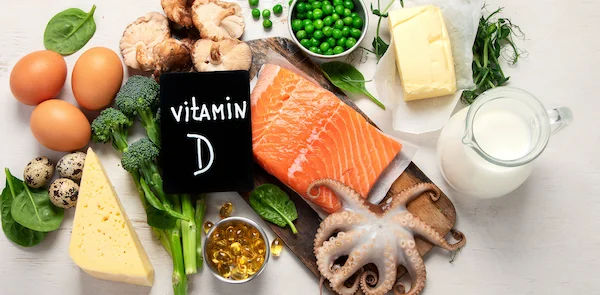10 Proven Health Benefits of Drinking Buttermilk Daily
Discover buttermilk benefits for digestion, hydration, and more. Learn how this probiotic drink can fit into a healthy diet, plus safety tips and FAQs.


Introduction
Buttermilk has been sipped for centuries as a refreshing, tangy drink—and modern nutrition science helps explain why. As a probiotic drink, it can support digestion, deliver key nutrients found in dairy, and fit easily into many eating patterns. If you’re curious about practical, science-backed buttermilk benefits you can feel good about, this guide is for you.
What Exactly Is Buttermilk?
Buttermilk today is usually “cultured buttermilk,” made by adding live lactic acid bacteria to milk. These friendly bacteria ferment the milk’s natural sugars, giving buttermilk its mild tang and creamy texture. Traditional buttermilk—once the liquid left after churning butter—is less common.
Consult a Top Nutritionist for Personalised Advice
Does it always have probiotics?
- Many brands contain live and active cultures, but not all do.
- Look for labels that say “live and active cultures” to maximise potential probiotic benefits.
- Remember: cooking or baking with buttermilk will inactivate live cultures, though the dish still retains dairy nutrients.
10 Proven Health Benefits of Drinking Buttermilk Daily
These benefits are supported by reputable nutrition and health organisations. Individual results vary, but buttermilk works best as part of an overall balanced diet.
1) Supports Digestion and a Healthy Gut
Cultured buttermilk with live and active cultures provides beneficial bacteria that can help support a balanced gut microbiome. A healthier gut ecosystem is linked with better digestion and may help reduce occasional digestive discomfort for some people. Evidence on probiotics shows potential benefits for certain gastrointestinal issues, though effects depend on the specific strains and doses used.
2) May Be Easier to Tolerate Than Milk for Some With Lactose Intolerance
Fermented dairy, like yoghurt and cultured buttermilk, is often better tolerated than regular milk because fermentation lowers lactose, and the bacteria provide enzymes that help break it down. Many people with lactose intolerance can handle small servings of fermented dairy, though tolerance varies by person. Start with a small amount and see how you feel.
3) Contributes to Bone and Teeth Health
Dairy foods supply bone-supporting nutrients such as calcium and phosphorus, plus high-quality protein. Including buttermilk as one of your daily dairy choices can help you meet these needs, alongside weight-bearing exercise and an overall nutrient-rich diet that supports bone strength.
4) Offers High-Quality Protein for Satiety and Muscle Maintenance
Dairy protein contains all the essential amino acids your body needs. A serving of buttermilk can help you feel satisfied, support muscle maintenance, and be a smart addition to snacks or meals—especially helpful for active adults and older adults aiming to preserve muscle.
5) Helps With Hydration and Electrolyte Replenishment
Because it’s mostly water, buttermilk contributes to daily fluid intake. It also naturally contains electrolytes found in dairy, such as potassium. Enjoy it chilled after time in the heat or with a meal to help you stay hydrated. If you’re watching sodium, choose unsalted or lower-sodium varieties.
6) Fits Into Heart-Healthy Eating Patterns
Low-fat, unsweetened cultured buttermilk can fit into heart-healthy eating patterns (such as the DASH diet), which emphasise fruits, vegetables, legumes, whole grains, and low-fat dairy. These patterns support healthy blood pressure and overall cardiovascular health when combined with an active lifestyle and other healthy habits.
7) May Help Reduce Certain Types of Diarrhoea—Depending on the Cultures
Research shows some probiotic strains can reduce the risk of antibiotic-associated diarrhoea and support recovery from some gastrointestinal infections. Cultured buttermilk with live and active cultures may contribute similar benefits, but results depend on the exact strains and amounts present. Check labels and remember that responses vary by individual.
8) Supplies B Vitamins for Energy Metabolism
Dairy foods provide B vitamins—such as riboflavin and vitamin B12—which help your body convert food into energy and support nervous system function. Buttermilk can be one simple way to include these nutrients in your day, especially if you don’t regularly eat other dairy or animal-based foods rich in B12.
9) A Smarter Swap for Creamy Drinks and Recipes
Craving something creamy? Buttermilk’s naturally tangy, rich taste makes it an easy, lower-calorie swap for heavy cream in smoothies or dressings, and a flavourful base for savoury drinks like unsweetened lassi. Choosing buttermilk in place of high-sugar beverages or richer dairy can help you manage calories and saturated fat without giving up taste.
10) Supports Immune Health Indirectly Through a Healthier Gut
A well-balanced gut microbiome plays a role in immune function. While buttermilk is not a cure-all, regularly consuming fermented foods with live cultures—like cultured buttermilk—can be one piece of a gut-friendly dietary pattern that supports overall health.
How to Choose and Drink Buttermilk Safely
Choose and drink buttermilk safely, for the following reasons:
- Pick pasteurised products: Avoid raw or unpasteurised dairy to reduce the risk of foodborne illness. This is especially important for pregnant people, young children, older adults, and anyone with a weakened immune system.
- Look for “live and active cultures”: If you want potential probiotic effects, choose cultured buttermilk that indicates live cultures on the label.
- Watch added sugar and salt: Choose unsweetened varieties. If sodium is a concern, check the Nutrition Facts panel and ingredient list.
- Start with a small serving: If you have lactose intolerance, try a small amount first and assess your comfort.
- Mind allergies: If you have a dairy allergy or a medically advised dairy restriction, skip buttermilk and consult your clinician for alternatives.
Simple, Tasty Ways to Add Buttermilk to Your Day
Ways to add buttermilk to your day include:
- Sip it chilled with a pinch of roasted cumin or fresh mint (skip added salt if you’re watching sodium).
- Make an unsweetened fruit smoothie with berries, cinnamon, and a handful of oats.
- Stir into overnight oats for extra creaminess.
- Whisk into a light, tangy salad dressing with olive oil, lemon, herbs, and garlic.
- Use as a marinade for chicken or tofu. Note: cooking will inactivate live cultures, but you’ll still get flavour and dairy nutrients.
Consult a Top Nutritionist for Personalised Advice
Consult a Top Nutritionist for Personalised Advice

Ms. Sushma Jaiswal
Dietician
42 Years • M.Sc.(Food & Nutrition)
Bengaluru
Swasthya Nutrition, Bengaluru

Ms. Neelanjana J
Dietician
5 Years • Bsc., Msc. Nutrition and Dietetics specialised general weight management, PCOS/PCOD weight loss and Diabetes management. A clinical dietitian with 4+ year experience specializing in evidence-based, result-oriented nutrition therapy. I have extensive experience in weight loss, thyroid management, PCOD/PCOS, weight gain, and diabetes & prediabetes care. My approach is personalized, practical, and sustainable—focusing on helping individuals achieve long-term lifestyle change rather than quick fixes. I work closely with clients to understand their medical history, lifestyle, and goals, and then design customized diet plans that support hormonal balance, metabolic health, and overall wellbeing. My goal is to make nutrition simple, realistic, and effective—so you see measurable results and feel your healthiest self.Auther in Health benefits of jackfruit (Artocarpus heterophyllus Lam.) seeds: A review (2023) The Pharma Innovation Journal Co- Auther in Malnutrition in Women: A review (2023) The Pharma Innovation Journal. Highfield Level 3 in HACCP. Highfield Level 4 International Award in Food Safety Managment
Bengaluru
Apollo Clinic, JP nagar, Bengaluru

Ms. Soma Saha
clinical nutrition
17 Years • B.Sc. - Home Science (Food & Nutrition), M.Sc. - Home Science (Food & Nutrition)
Kolkata
Dr Utsa Basu Clinic, Kolkata
(50+ Patients)
Mrs Sneha P V
Nutritionist
10 Years • Master of science in Food and Nutrition
Bengaluru
Apollo Clinic, Sarjapur Road, Bengaluru

Ms. Samapti Maity
Dietician
16 Years • MSc. (Clinical Nutrition & Dietitics), NDEP, Course in Maternal Infant Young Child Nutrition.Diploma in Sports Nutrition, Diploma in Diabetic educator, FODMAP Specialist
Kolkata
BIENETRE CLINIC, Kolkata
Consult a Top Nutritionist for Personalised Advice

Ms. Sushma Jaiswal
Dietician
42 Years • M.Sc.(Food & Nutrition)
Bengaluru
Swasthya Nutrition, Bengaluru

Ms. Neelanjana J
Dietician
5 Years • Bsc., Msc. Nutrition and Dietetics specialised general weight management, PCOS/PCOD weight loss and Diabetes management. A clinical dietitian with 4+ year experience specializing in evidence-based, result-oriented nutrition therapy. I have extensive experience in weight loss, thyroid management, PCOD/PCOS, weight gain, and diabetes & prediabetes care. My approach is personalized, practical, and sustainable—focusing on helping individuals achieve long-term lifestyle change rather than quick fixes. I work closely with clients to understand their medical history, lifestyle, and goals, and then design customized diet plans that support hormonal balance, metabolic health, and overall wellbeing. My goal is to make nutrition simple, realistic, and effective—so you see measurable results and feel your healthiest self.Auther in Health benefits of jackfruit (Artocarpus heterophyllus Lam.) seeds: A review (2023) The Pharma Innovation Journal Co- Auther in Malnutrition in Women: A review (2023) The Pharma Innovation Journal. Highfield Level 3 in HACCP. Highfield Level 4 International Award in Food Safety Managment
Bengaluru
Apollo Clinic, JP nagar, Bengaluru

Ms. Soma Saha
clinical nutrition
17 Years • B.Sc. - Home Science (Food & Nutrition), M.Sc. - Home Science (Food & Nutrition)
Kolkata
Dr Utsa Basu Clinic, Kolkata
(50+ Patients)
Mrs Sneha P V
Nutritionist
10 Years • Master of science in Food and Nutrition
Bengaluru
Apollo Clinic, Sarjapur Road, Bengaluru

Ms. Samapti Maity
Dietician
16 Years • MSc. (Clinical Nutrition & Dietitics), NDEP, Course in Maternal Infant Young Child Nutrition.Diploma in Sports Nutrition, Diploma in Diabetic educator, FODMAP Specialist
Kolkata
BIENETRE CLINIC, Kolkata
More articles from General Medical Consultation
Frequently Asked Questions
What is the difference between traditional and cultured buttermilk?
Traditional buttermilk is the tangy liquid left after churning butter from cream. Most store-bought buttermilk today is cultured milk fermented with lactic acid bacteria—so it tastes tangy even though no butter is involved.
Does buttermilk always contain probiotics?
Often, but not always. Many brands add live and active cultures, but some products may be heat-treated or formulated without them. Check the label for “live and active cultures.” Remember that heating buttermilk during cooking will inactivate those cultures.
How much buttermilk should I drink daily?
There’s no one-size-fits-all amount. Many people do well with 1 cup (about 240 mL) as part of their daily dairy intake, depending on overall diet, calorie needs, and tolerance. If you’re new to fermented dairy or have lactose intolerance, start with smaller servings.
Can people with lactose intolerance drink buttermilk?
Some can. Fermented dairy is often better tolerated than regular milk. Choose cultured buttermilk with live and active cultures, start with a small serving, and see how you feel. If symptoms persist, consult a healthcare professional.
Is buttermilk safe during pregnancy?
Yes—if it’s pasteurised. Avoid raw or unpasteurised dairy to reduce the risk of foodborne illness during pregnancy. Check labels and choose reputable brands.




